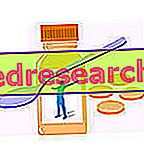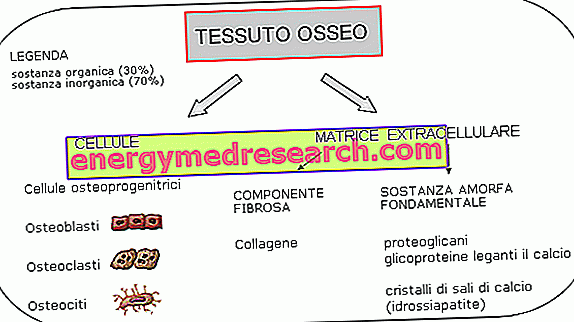REZAN ® is a drug based on Azithromycin
THERAPEUTIC GROUP: Antibacterials - Antibiotics for systemic use
IndicationsAction mechanismStudies and clinical effectiveness Usage and dosage instructionsWarnings Pregnancy and lactationInteractionsContraindicationsUndesirable effects
Indications REZAN ® Azithromycin
REZAN ® is indicated in the treatment of all infections sustained by microorganisms sensitive to macrolides and in particular to azithromycin.
Its efficacy has been demonstrated in the treatment of respiratory tract infections, skin and soft tissues, gynecological and otorhinolaryngological apparatus.
Mechanism of action REZAN ® Azithromycin
Azithromycin, the active ingredient of REZAN ®, is a macrolide with 15 carbon atoms derived from erythromycin through the insertion of a nitrogen atom in its lactone ring.
Equipped with an antibacterial spectrum similar to that of erythromycin except for the greater activity towards Gram-negative aerobic microorganisms, generally responsible for serious infectious diseases affecting the upper and lower respiratory tract, Azithromycin owes its therapeutic efficacy to capacity to inhibit the 50S ribosomal subunit, useful for ensuring the binding of the ribosome with the enzyme peptidyltransferase, which is important in ensuring the elongation of the polypeptide chain.
Thanks to greater chemical and physical stability in an acid environment, this active ingredient taken by mouth reaches its maximum plasma concentration in 2-3 hours, effectively distributing itself in all tissues where it lasts for 2-4 days, before being eliminated with I made it through the bile.
It is useful to remember that in some cases the therapeutic efficacy of the product may be drastically reduced following the appearance of resistance mechanisms such as:
- Expression of efflux pumps, which prevent the active principle from reaching appreciable concentrations inside the cell;
- Modification of the target binding site;
- Enzymatic inactivation of the active ingredient.
Studies carried out and clinical efficacy
1 AZITHROMYCIN AND NEW RELEASE SYSTEMS
Pharm Dev Technol. 2012 Jul 20.
Interesting work that experiments the effectiveness of the release of azithromycin by aerosol in the treatment of respiratory infections, demonstrating in addition to a regression of the symptomatology also an enhancement of macrophage activity.
2 . AZITHROMYCIN and ASMA
J Am Board Fam Med. 2012 Jul; 25 (4): 442-59. doi: 10.3122 / jabfm.2012.04.110309.
Clinical trial that demonstrates that despite treatment with azithromycin may lead to an improvement in the quality of life of patients with asthma, it is not, however, able to vary the clinical course of the disease in patients with chronic and persistent asthma.
3.AZITHROMYCIN and RABDOMIOLYSIS
J Cardiovasc Dis Res. 2012 Oct; 3 (4): 319-22. doi: 10.4103 / 0975-3583.102720.
A very interesting case report that emphasizes a possible interaction, generally not considered and characterized by the simultaneous administration of Azithromycin and Simvastatin, potentially responsible for rhabdomyolysis with a sudden and very high increase in creatinine and creatinine phosphokinase.
Method of use and dosage
REZAN ®
500 mg film-coated tablets of Azithromycin;
In most infections where antibiotic therapy with Azithromycin is indicated, the effective dosage is that of 500 mg of active ingredient taken daily in a single administration.
Only in some cases the dosage can be doubled, taking care however to always maintain the single dose daily.
On the other hand, an adjustment of the required doses would be effective both in pediatric patients, in the elderly or in patients suffering from liver diseases.
The use of REZAN ® in children must necessarily be defined and supervised by the specialist doctor.
Warnings REZAN ® Azithromycin
It is useful to remember that the mass therapeutic efficacy is guaranteed by the correct administration of the antibiotic, which generally should be preceded by a medical examination to ascertain the patient's clinical picture, the physio-pathological state in general and the possible presence of conditions incompatible with macrolide therapy, as in the case of liver disease.
An increase in side effects such as the lengthening of the QT interval or the overlap of intestinal infections sustained by clostridium resistant to antibiotic therapy such as Clostridium difficile, could be responsible for serious complications such as pseudomembranous colitis.
Re-exacerbations of diseases such as myasthenia gravis or heart disease have rarely been observed following prolonged administration of REZAN ®.
REZAN ® contains lactose and glucose; it is therefore contraindicated in patients with lactase enzyme deficiency, lactose intolerance and glucose-galactose malabsorption syndrome.
PREGNANCY AND BREASTFEEDING
The use of REZAN ® during pregnancy and in the subsequent period of breastfeeding should be limited to cases of unavoidable necessity, given the ability of the active ingredient to either cross the blood-placental barrier or concentrate in breast milk.
Interactions
Despite the different studies on the pharmacokinetics and metabolism of azithromycin demonstrate a substantial safety of antibiotic therapy, it would be advisable to pay attention, contacting your doctor immediately following the simultaneous intake of oral anticoagulants, cyclosporine, digoxin and cardioactive active ingredients
Contraindications REZAN ® Azithromycin
The use of REZAN ® is contraindicated in patients suffering from hepatic, serious or uncompensated heart disease and in case of hypersensitivity to the active substance or to one of its excipients.
Undesirable effects - Side effects
The use of Azithromycin, especially when prolonged over time, could lead to the appearance of side effects such as nausea, diarrhea, vomiting, dizziness, headache, irritability, increased transaminases, hypotension and allergic reactions.
Note
REZAN ® is a prescription-only drug.



